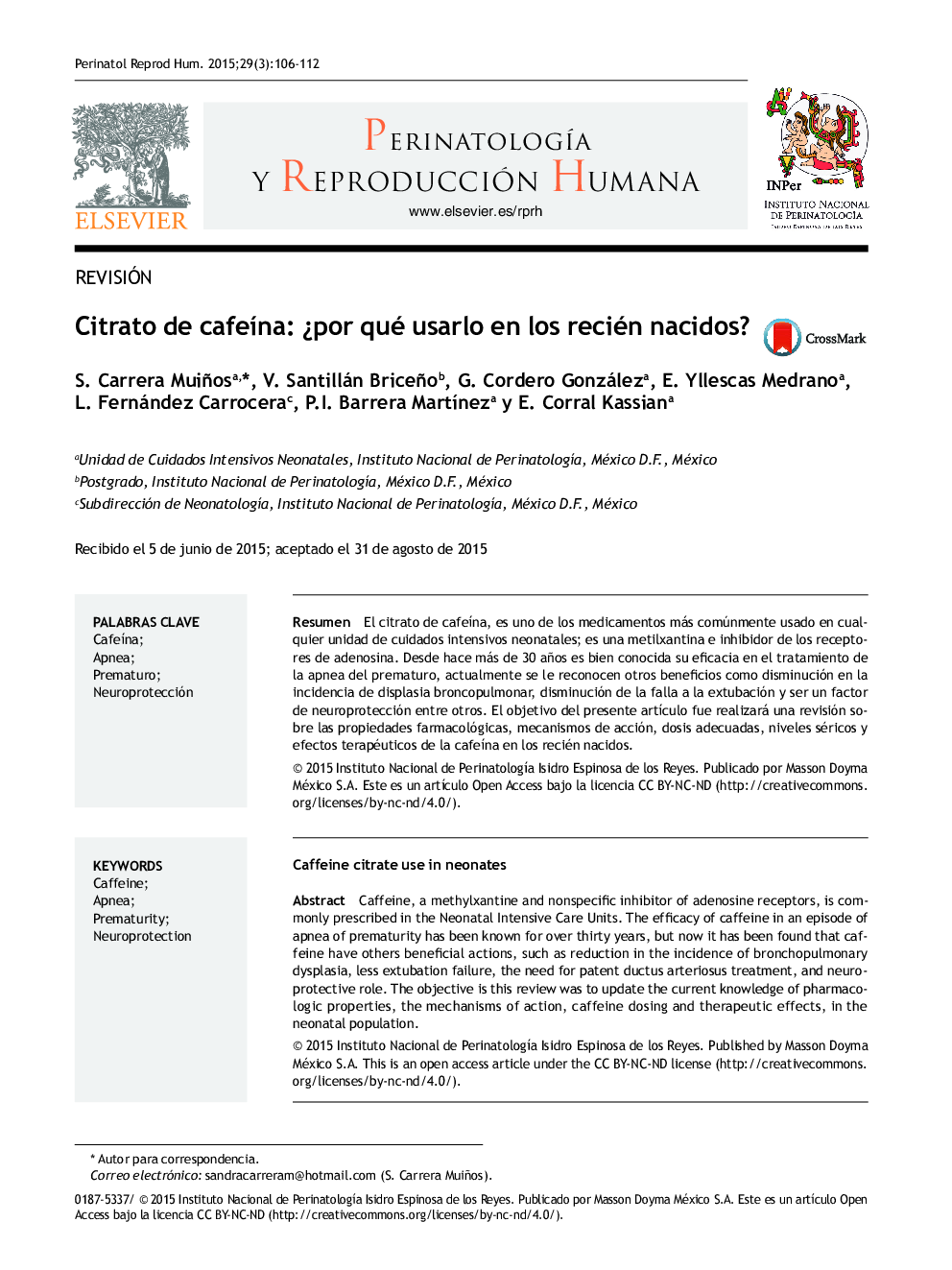| Article ID | Journal | Published Year | Pages | File Type |
|---|---|---|---|---|
| 4175700 | Perinatología y Reproducción Humana | 2015 | 7 Pages |
ResumenEl citrato de cafeína, es uno de los medicamentos más comúnmente usado en cualquier unidad de cuidados intensivos neonatales; es una metilxantina e inhibidor de los receptores de adenosina. Desde hace más de 30 años es bien conocida su eficacia en el tratamiento de la apnea del prematuro, actualmente se le reconocen otros beneficios como disminución en la incidencia de displasia broncopulmonar, disminución de la falla a la extubación y ser un factor de neuroprotección entre otros. El objetivo del presente artículo fue realizará una revisión sobre las propiedades farmacológicas, mecanismos de acción, dosis adecuadas, niveles séricos y efectos terapéuticos de la cafeína en los recién nacidos.
Caffeine, a methylxantine and nonspecific inhibitor of adenosine receptors, is commonly prescribed in the Neonatal Intensive Care Units. The efficacy of caffeine in an episode of apnea of prematurity has been known for over thirty years, but now it has been found that caffeine have others beneficial actions, such as reduction in the incidence of bronchopulmonary dysplasia, less extubation failure, the need for patent ductus arteriosus treatment, and neuroprotective role. The objective is this review was to update the current knowledge of pharmacologic properties, the mechanisms of action, caffeine dosing and therapeutic effects, in the neonatal population.
